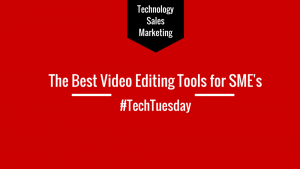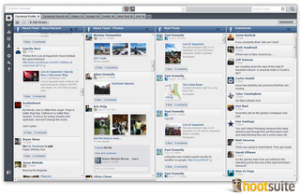Interviewing. It can strike fear into the heart of even seasoned executives. It definitely can be anxiety inducing for candidates. And recruiters? Yes, even those folks who make their living figuring out where people “fit” can find themselves nervous, bored or just frustrated. Frankly, I’ve been all three of these people. I’ve made every mistake in the book from all angles, so who better to tell you what a great interview could be like?
No one. That’s who. Buckle Up.
1. Be prepared. This seems so simple but let me tell you about a time I forgot it.
I was working at my first close-to-six-figure job telework job and I thought I knew what was UP. I saw a great gig that suited my skills in the newspaper (shut up) and called for an interview and got one immediately. With my skills in an international market, this piddly little Omaha gig would be a cinch. I wasn’t even worried. Until the interviewer asked me what the company did. I had NO idea. I attempted to make something up, and she laughed. Not even close. Lesson? Transferable skills don’t mean anything if you are too arrogant to learn about what the company does (same goes for recruiters, don’t call in a B2C marketer when you need someone who sells to enterprise.) By contrast, one of my best employees read my entire blog before she came into the interview, something that impressed me then and does still.
2. Don’t drive impaired and DON’T interview desperate.
I once interviewed a smart and capable young financial analyst. The company was an odd little duck and I had a funny feeling it was going to be a short run. Of course, I couldn’t say this out loud, after it was just a feeling and it would likely cost me my job. But as this fresh-faced, ambitious kid sat across from me, I felt terrible selling him on a gig that I KNEW wasn’t a fit. So I told him how “challenging” the environment could be and how difficult the industry was at the time (2008) — he didn’t get the message and came aboard immediately. We’re still friends and talk about that disaster of a company. I say, “I tried to tell you!” and his answer is always the same, “I heard you, but I needed to get out of my other job so badly, I just didn’t listen.” Desperation, if you can help it, should stay out of any and all interviews. (Again, companies can make the same mistakes — don’t wait until the last person in the department is so overloaded they are threatening to quit before you hire some help.)
3. When someone tells you who they are, listen the first time.
At Red Branch, I send out a pretty strong, bulleted list of who we want here and who won’t last a day. This place attracts amazing people, but not everyone is suited to working here. Some need a more professional environment than I can provide and others truly want the cubicle life. Some people are looking for an extension of college while I run a business. Either way, this email usually weeds out the right folks (this doesn’t make these other folks bad employees, they’re just not Branchers, like in their hearts.) However, sometimes people want to be the person I describe: scrappy, hard working, professional but doesn’t take themselves too seriously, thick-skinned, incredibly freaking smart) so they come in and work for us anyway. They never last. Or the interview doesn’t anyhow. They realize that I meant every word in the email and leave within a week. Be as honest as possible in interviews, it saves everyone time and money.
4. Shut up.
Once I talked to a panel of people interviewing me for three hours. I never once shut up. I had sweat stains from sitting in that interview room. And it was for a 36k a year job. Looking back, I realize they would have concluded the interview a lot earlier, if I had let them get a word in edgewise. Now as someone who frequently interviews people, I get how precious the managers’ time is, no one has time for 4 hours of interviewing ONE candidate. Look, you’ve already exchanged resumes and job descriptions, company summaries and portfolios. The interview is about seeing if you are a fit together. A great line to use is, “Well, I know your time is valuable so, is there anything else you want me to know?” This works for both parties and only the most socially obtuse person won’t see it’s time to be all done now.
5. Speak up.
I am a riddle wrapped in an enigma, I know. You have to speak up about the things that are important in an interview. This means, everyone’s least favorite thing, negotiation. You should never accept the first thing on the table. Not unless it’s an internship or a government job. But you can’t just be all, “I think I deserve more money because Maren said on LinkedIn that I should negotiate.” You have to be able to prove based on your past experience that you deserve more. That is usually done (in my experience) by proving you will make the company more money with your skills, experience, expertise OR by showing the hiring manager specifically what they will NOT have to do once you come aboard (this goes beyond your job description). The same goes for those doing the hiring. Why should this bright young thing accept your crummy offer? What can you put in there to sweeten the pot?
6. Don’t leave….
Until you have given the other person in that room the right piece of information. That one little thing about you that makes you perfect for this job. Maybe it’s that you are an entrepreneur at heart and will work like one. Maybe it’s that you built four startups and know the challenges associated with it. Maybe it’s that you’ll learn to code on your own time to make you even more valuable (to them and to future you). If you are the recruiter, make sure they GET that you are the person that can complete this team — which will go on to do amazing things in the future. Show them the awesome workstation you have set up for someone just like them. Introduce them to Marlene at the front desk who never fails to charm the new employees. Whatever it is, get it out and don’t leave until you do.
7. Follow up.
I am terrible at follow up. I either don’t do it or do it in the most creepy way possible. One time I left a long, rambling message on the CTO’s personal voicemail wherein I REFERENCED THE MOVIE PYSCHO (with sound effects). Another time, I dropped off my complete portfolio (with attached CD-ROM natch) on the VP’s desk. Other times, I let people drop off the face of the earth and you best believe they judge me for it. All the folks that work here at Red Branch worked their rear ends off to let me know they wanted to be here. It shows still in their daily work and makes me glad I didn’t hire the kid who was charming, but unreliable or the gal who looked great on paper but never followed up. Follow up or reach out with a simple email or phone call and then leave it alone. Don’t stalk or be weird. Leave a message if you must, but leave the sound effects out of it.
What do you think makes the best interview ever? Did I miss something super obvious?
(182)
Report Post




